As market conditions shift and job tenures become shorter, Chief Marketing Officers (CMOs) are realizing the value of building their personal brand to secure better career opportunities.
However, personal branding isn’t limited to CMOs alone; professionals at all levels within a company can benefit from cultivating their personal brand.
In this post, we’ll explore why personal branding matters, the strategies behind it, and how it can enhance your professional journey.
What Is a Personal Brand?
A personal brand is when an individual markets themself and their career as a brand. Rather than simply promoting specific products or services, personal branding often involves promoting the person’s expertise, skills, values, personality and overall identity.
The concept suggests that success comes from self-packaging. Essentially, you’re presenting yourself as a brand, just as a company does with its products. This is often reflected in a person’s online presence, such as social media profiles, personal websites, blogs, or any other form of content.
Consider Lisa, the CMO of a leading tech company. Lisa wants to build her personal brand, so she decides to concentrate on showcasing her expertise in innovative marketing strategies in the tech industry. Here are a few steps she might take:
- Content Creation: Lisa starts a blog where she regularly publishes articles on emerging marketing trends in the tech sector. She discusses real-life challenges she’s faced, how she’s solved them, and shares advice for others in similar positions. She also guest posts on other high-profile industry blogs and online publications, contributing her insights and extending her reach.
- Public Speaking: She accepts invitations to speak at industry conferences and events. These speaking engagements give her a platform to share her knowledge and connect with others in her industry. She might also host webinars or appear on relevant podcasts.
- Social Media Presence: Using platforms like LinkedIn and Twitter, she shares her blog posts, comments on industry trends and engages with her followers. She makes a point to interact with others, answering questions and starting conversations.
- Networking: She prioritizes building strong professional relationships by attending industry events, regularly engaging with others on social platforms, and making time for one-on-one meetings.
- Personal Website: Lisa has a personal website where she compiles all her work. This includes her blog posts, a schedule of her speaking engagements and a portfolio showcasing her achievements.
In essence, by consistently presenting herself as a knowledgeable, approachable expert in her field, Lisa creates a personal brand that is separate from (or at least not wholly focused on) her role as a CMO in XYZ Company which can open up new opportunities and strengthen her existing role as a Chief Marketing Officer.
Why Personal Branding Matters for CMOs and Professionals
When you invest in your own personal brand, you humanize yourself in the eyes of your target market. You move beyond being a faceless representative of your company and, instead, become an approachable figure. This connection fosters trust, as people feel more comfortable doing business with someone they know and can relate to on a personal level.
In fact, 70% of people feel more connected to a brand when a C-suite employee engages on social media:
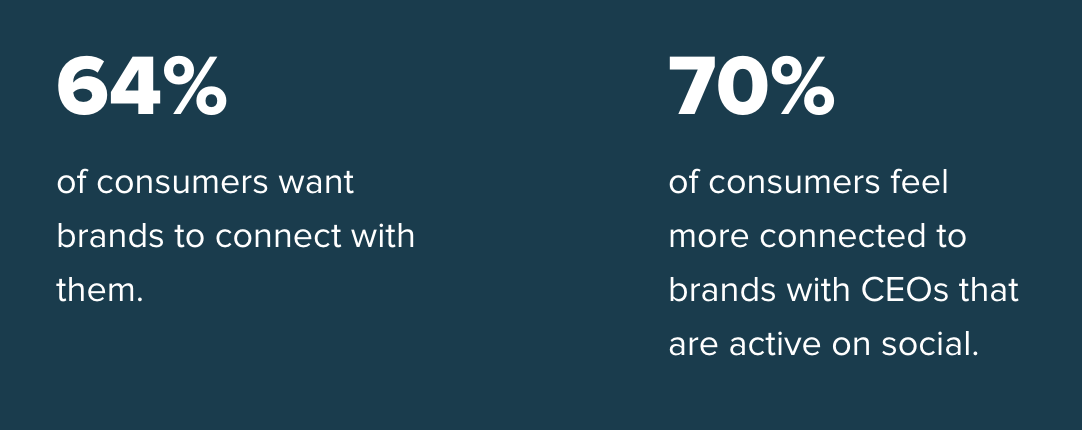
Once you’ve solidified an identity for your personal brand, you have the opportunity to share your story, values and vision. By being transparent and authentic, you create a sense of trust and credibility. Your audience gets to know the person behind the title, making it easier for them to engage with you and build a lasting professional relationship.
This trust and connection are not limited to CMOs alone. Professionals at all levels within an organization can benefit from personal branding. Regardless of your role, when you invest in building your personal brand, you position yourself as a trustworthy and reliable professional, making it easier to collaborate and attract new opportunities.
Creating More Agile Opportunities
A strong personal brand opens doors to a world of opportunities. As you build your personal brand, you establish yourself as an industry expert and a go-to resource for valuable insights and knowledge. This recognition leads to exciting prospects and increased visibility in your field.
For CMOs, a robust personal brand can be the catalyst for career advancements.
As decision-makers within organizations, they need to establish their credibility and expertise not only within their current role, but also in the eyes of potential future employers. By investing in personal branding, CMOs increase their visibility, making them more likely to be considered for coveted opportunities and executive positions.
Personal branding isn’t limited to CMOs, of course. Professionals at any level can benefit from the opportunities that come with a strong personal brand. By establishing yourself as an authority in your niche or industry, you attract attention from potential clients and employers. Your personal brand becomes a powerful tool for networking and opening doors to new ventures and career advancements:
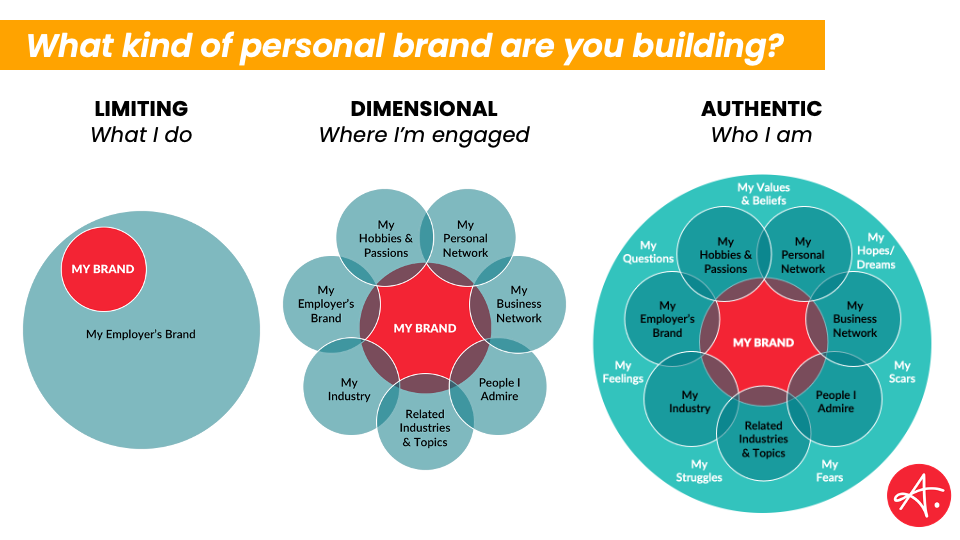
Additionally, a strong personal brand allows you to differentiate yourself from competitors.
In a saturated market, where businesses often offer similar products or services, personal branding sets you apart by showcasing your unique strengths and value proposition, as opposed to just a checklist of experience and responsibilities. This distinctiveness increases your chances of being noticed and chosen by potential clients or employers.
Related Content: The Complete Guide to Brand Building (Must-Read for Digital Marketers)
Establishing Thought Leadership
One of the most effective strategies for personal branding is to establish yourself as an authority in your industry. Becoming a thought leader means positioning yourself as an authoritative source of knowledge and insights.
Here are a few ways how you can leverage this strategy:
- Engage in Thoughtful Conversations: Actively participate in industry-specific discussions, both online and offline. Engage with other professionals and contribute to conversations. By actively engaging with your audience, you demonstrate your expertise and willingness to share your knowledge.
- Collaborate with Influencers: Collaborating with influencers or other thought leaders in your industry can amplify your personal brand. By participating in joint projects, co-authoring articles, or hosting webinars together, you can tap into their audience and further establish your credibility.
- Share Your Expertise: Use various mediums, such as podcasts, articles or speaking engagements, to share your expertise. Consistently offer valuable insights, tips, and strategies related to your industry. By providing unique perspectives and valuable information, you establish yourself as a go-to resource for industry knowledge:
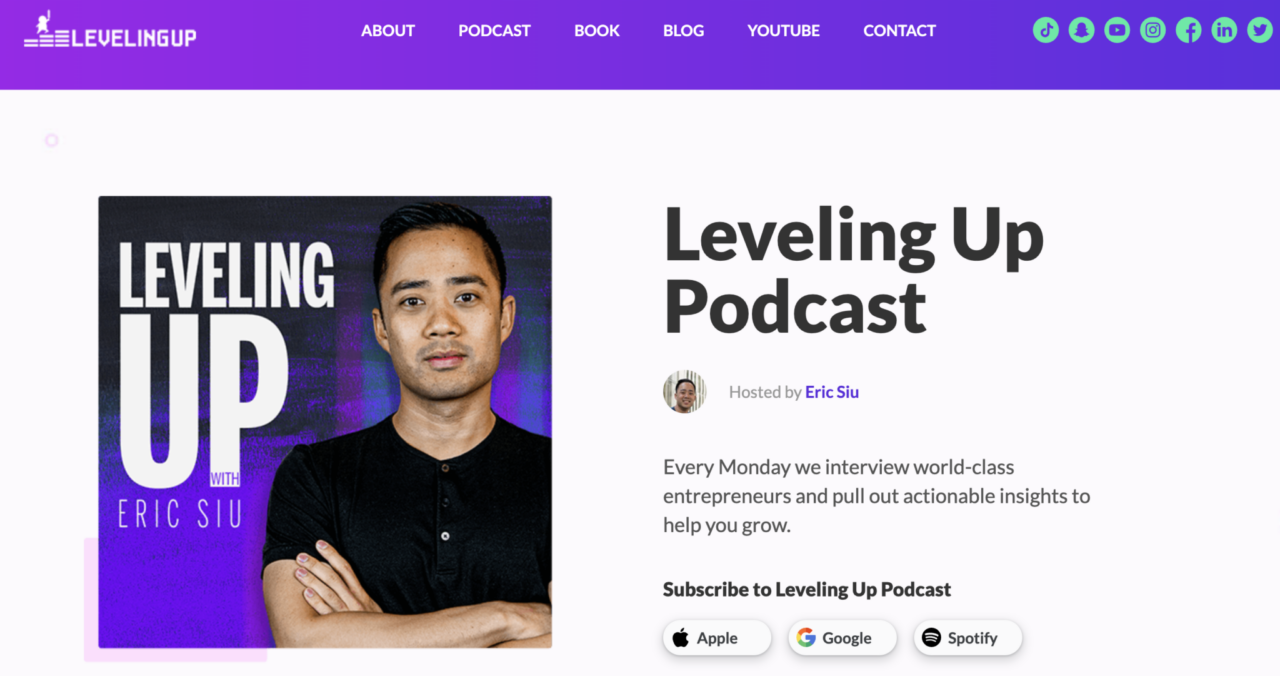
Leveraging Social Media
Social media platforms like LinkedIn provide excellent opportunities for showcasing your personal brand.
Here are a couple strategies for leveraging social media effectively:
- Create Authentic Content: Develop a content strategy that aligns with your personal brand and audience. Share valuable content, such as articles, videos or infographics, that provide insights, tips, and solutions related to your industry. Be authentic and consistent in your content creation, reflecting your unique voice and perspective.
- Build a Strong Online Presence: Create a professional and engaging profile on platforms like LinkedIn and Twitter. Optimize your profile with relevant keywords and a compelling bio. Showcase your expertise in a concise and impactful manner. Also, don’t cut corners with your headshot image. Put in the effort to make it clean and professional because people do notice, and they do judge books by their cover on LinkedIn. In other words:
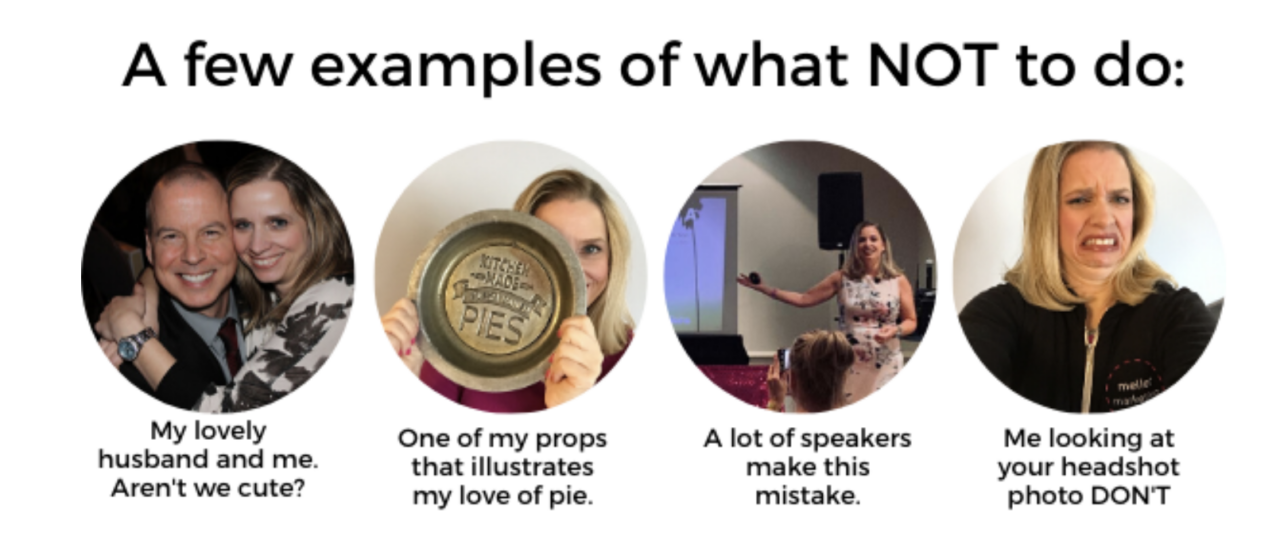
Showcasing Results
When building your personal brand, it’s essential to focus on showcasing tangible results and success stories.
Here are our best recommendations for how you can effectively highlight your achievements:
- Highlight Case Studies: Share case studies that illustrate how your expertise and strategies have produced tangible results. Whether you operate in the B2B or B2C space, demonstrating the positive outcomes of your work reinforces your credibility and establishes you as a reliable professional.
- Provide Data and Metrics: Back up your success stories with data and metrics whenever possible. Quantifiable results add credibility to your personal brand. Whether it’s increased revenue, improved conversion rates, or client testimonials, use concrete evidence to showcase the impact of your work.
- Communicate Your Personal Value Proposition: Clearly articulate the unique value you bring to the table. Highlight what sets you apart from others in your industry and how your expertise can benefit the clients you work with. Communicate the value you provide through success stories and real-world examples, all positioned in a way that can make your prospect successful as well.
Enhancing Your Personal Brand
When enhancing your personal brand, it’s crucial to shift the focus from solely promoting yourself to genuinely showing interest in others:
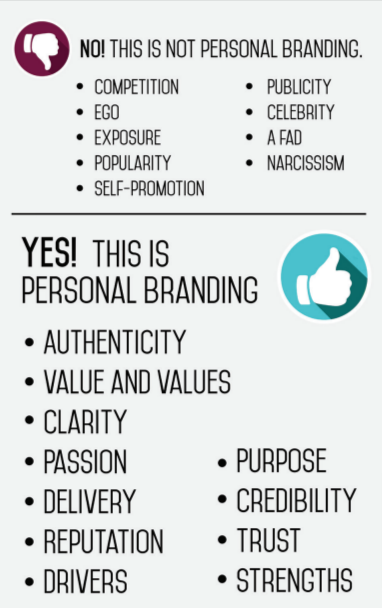
The reason a lot of CMOs are successful is that they don’t pour all of their reputation into one brand for which they work. Instead, they position themself as a role within many different brands, unified by a common issue that they helped with. They also learn to loosen up on their own ego in the process!
Here’s how you can do it too….
Be Interested, Not Just Interesting
Most people tend to think that they need to impress others to make a good impression. But you’re overthinking it.
You really just need to allow your prospects to think they are the impressive ones, and you’re just there to help others see it. Pay attention to them. Make them feel valuable.
Start with these simple approaches:
- Engage with Your Audience: Engage with your audience by responding to comments, answering questions and participating in conversations. Take the time to understand their needs and aspirations. If you show genuine interest in their concerns, you will develop trust and establish yourself as a helpful resource.
- Provide Valuable Solutions: Offer valuable solutions and insights based on your expertise. Share knowledge and advice that can genuinely benefit your audience. By focusing on providing value, you position yourself as a person of authority and someone who genuinely cares about helping others succeed.
- Be a Good Listener: Actively listen to your audience’s feedback and incorporate it into your personal brand strategy. Pay attention to their pain points and preferences. By adapting and tailoring your content and offerings to meet their needs, you demonstrate that you are invested in their success.
If you adopt an approach of being interested in others, you will create an authentic and meaningful connection with your audience. This connection will inevitably help you build trust, loyalty, and long-term relationships with your customers.
Consistency and Repetition
Consistency and repetition are key elements in enhancing your personal brand. By applying the principles of the “rule of seven” or even the “rule of fourteen” in marketing, you can reinforce your brand message and increase visibility.
Here’s how you can leverage consistency and repetition effectively:
- Repackage Core Messages: Identify your core messages and values that align with your personal brand. Repackage and deliver these messages across various channels, such as social media, blogs, podcasts or videos. However, remember to adapt the format and style to suit each platform while maintaining a consistent brand voice.
- Consistent Visibility: Strive for consistent visibility in your chosen channels. Regularly publish content, engage with your audience, and participate in industry discussions. Consistency helps you stay top of mind and allows your audience to become familiar with your brand. Over time, they will associate your name with expertise and value.
- Reinforce Your Brand Image: Repetition reinforces your brand image in the minds of your audience. However, it’s important to avoid simply regurgitating the same content without adding value. Find creative ways to present your core messages and insights, ensuring they remain fresh and relevant to your audience.
By applying consistent visibility and repetition, you solidify your personal brand image and increase the chances of your audience remembering you when they need your expertise or services. However, always prioritize delivering valuable and meaningful content to ensure that repetition doesn’t become monotonous or redundant.
Authenticity and Building Trust
Our last words of advice are to just be you.
Stay true to your values and expertise. People appreciate genuine individuals, and your authenticity will resonate with your audience, fostering trust and credibility.
Let’s consider these aspects using our CMO, Lisa, as an example.
Being Authentic and Building Trust:
If Lisa’s personal brand is authentic, it means she’s true to who she is, both personally and professionally. She shares her genuine experiences, ideas and values without pretense. When she talks about challenges she’s faced, she doesn’t embellish or twist the truth to make herself look better. She’s open about her successes and her failures.
Her authenticity shines through:
- In her content creation; her blogs are personal, insightful and real
- On social media, where she shares genuine opinions, not just what she thinks people want to hear
- Via speaking engagements, which are infused with personal anecdotes and real-world examples
All of this contributes to building trust. People can smell inauthenticity a mile away. Lisa’s not afraid to show vulnerability, which helps others relate to her. They appreciate her honesty and candor, they feel like they know her, and they trust what she has to say because they believe she’s being genuine.
Not Being Authentic but Still Building Trust:
Suppose Lisa’s personal brand isn’t authentic. In that case, she might:
- present an image or persona that doesn’t align with who she really is or misrepresents her experiences
- only share her successes and never discuss failures
- embellish her experiences to make herself look better
- craft content just to mirror popular opinion rather than her own views
Even if Lisa isn’t authentic, she might still build some degree of trust, especially if she is consistently delivering value and demonstrating expertise. For example, if her advice and insights are consistently accurate and helpful, people might trust her as a reliable source of information, even if they don’t feel a strong personal connection to her.
The difference is significant, though. Trust built without authenticity can be more fragile, as it’s more susceptible to damage if the lack of authenticity is exposed. On the other hand, trust built with authenticity tends to be stronger and more resilient because it’s based on a genuine connection and understanding.
Final Comments on Building Your Own Personal Brand
Investing in your personal brand is crucial for professionals, including CMOs, in today’s competitive business world.
By establishing trust and showcasing your expertise, personal branding can unlock a myriad of possibilities for career growth and professional success.
Remember, building a personal brand isn’t about becoming famous; it’s about becoming a person of value and making meaningful connections with your audience. Embrace authenticity, leverage effective strategies, and watch your personal brand flourish.
If you’re ready to level up your brand, Single Grain’s growth marketing experts can help!👇
Repurposed from our Marketing School podcast.






